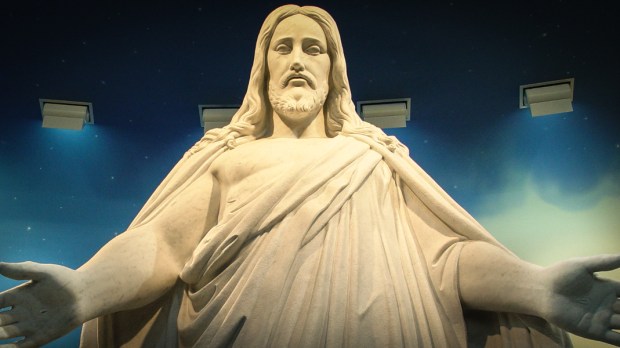Lenten Campaign 2025
This content is free of charge, as are all our articles.
Support us with a donation that is tax-deductible and enable us to continue to reach millions of readers.
“Easter more than once a year—a good idea?” I’d say, “No.” Let me qualify. Should every moment be lived in light of Christ’s resurrection? Yes—of course! But to undergo (from the Latin passio—“to suffer”) more than once a year the Holy Week that leads up to Easter—I think that’s unbearable.
If we weren’t such distracted and dissipated creatures, ones who so easily forget the graces we received even as we harden our hearts against them, if we didn’t have such a genius for discovering new rationalizations for old sins, then perhaps just one experience of Holy Week lived to its depths would be sufficient for our conversion. Speaking for myself, I know that I need to be reminded, I need to learn and re-learn and learn yet again that I’m a loved sinner, saved at a terrible cost to God. I need to hear time and again the call to be a good steward of the amazing graces I’ve received—graces that, if well lived, are more than sufficient to bring me and others to the happiness of Heaven. But I’m a slow learner. I need to relive the lessons of Holy Week year after year, in the hopes of living those lessons day by day.
Still, Holy Week more than once a year would be too much, even for slow learners like me. Consider what we’re asked to witness and live through during Holy Week: The euphoria of the fickle crowd on Palm Sunday, while knowing that anyone can be fickle. The underhandedness of Judas on Spy Wednesday, while knowing that anyone might have a price. The confusion and wonder of Holy Thursday, seeing that we’ve been given an infinite gift in the Eucharist—a gift we can care for so carelessly. The horror and trauma of Good Friday—witnessing the agonies of Jesus, the suffering of Mary, the flight of the apostles, the empty boasts of Peter—wondering how we could convince ourselves that we would have remained with Jesus till the end. The cold, dark silence of Holy Saturday—an eloquent statement of dashed hopes. All that followed by the wrenching, unexpected, wonder of Christ risen and victorious! If we truly lived those mysteries to their depths, we would be exhausted. Who could live through all that more than once a year?
Here’s our present challenge: In light of Easter, how shall we live? However well we’ve lived this Lent and Holy Week (or not), we’re now in the Easter season. And the Church teaches that while the liturgical season of Easter lasts 50 days till Pentecost Sunday, we live now in the new and irrevocable age of Easter. All of human past, present and future have been redefined by the victory of Christ. How shall we align our mind, heart and hands with the truth of Easter? That alignment, I believe, demands that we learn how to live forgiven.
I’ve said in many homilies over the years, “If we only play at being sinners, then we can only play at being saved.” If we tell ourselves that we’re “basically good” and that our sins don’t matter much, then Holy Week is just over-the-top and unnecessary divine melodrama. People indifferent to their sin view Holy Week the way people never trapped in a burning building read about being rescued from a fire—it’s an inspiring story but they can’t relate to it and are glad they don’t need to be rescued. People who take their sin seriously are like people who have been rescued from a burning building—they know that they were doomed and yet rescued by a power greater than themselves. Knowing that we must ask: Why then do Christians seem so glum? Shouldn’t people who know that they’re loved sinners have more light and music about them?
We know from Revelation 12:10 that “the accuser of the brethren has been cast down.” Who is “the accuser”? In Hebrew, the word for “adversary” and “accuser” is “satan.” Because of the righteous sacrifice of Christ, Satan has no claim over us. If Christians appear glum or joyless, it’s because they continue to take to heart Satan’s (now invalid) condemnation. Satan would have us believe that what defines us is our sin. What a lie! What defines us is our Baptism, which marks us with seal of the risen and victorious Christ. Yes, we still have a journey to make, from this life to the next. Along the way, there will be trials and tears. Yet, may the divine light and music radiate through us, for we’re loved sinners, called to the heart of our Heavenly Father, our only true home, where, already, a banquet is prepared for us.
When I write next, I will speak of homesickness. Until then, let’s keep each other in prayer.

